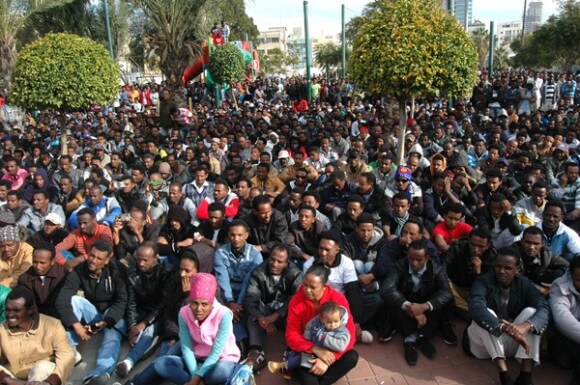
During a third day of strikes African asylum seekers in Israel have announced plans to march from Tel Aviv to Jerusalem to demand refugee status. Over 20,000 have already demonstrated in front of foreign embassies, and United Nations and European Commission offices.
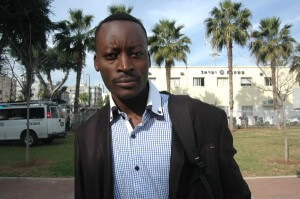
“We asked the police to give us permission to walk to Jerusalem tomorrow and ask the Israeli government for our rights,” said Mutasim Ali, 27, a Sudanese refugee who has lived in Israeli since 2009. “If we don’t’ get the permission than we will sleep here in Levinsky” he continued from a stage in Levinksy Park addressing around 10,000 Africans.
Ali is one of the principle organizers of the three-day strike, which turned out unprecedented numbers of African asylum seekers in front of the U.S Embassy yesterday. He’s a handsome and tall young activist, dressed in neon yellow pants and a tidy blazer. He hopes the three-day strike and walk to Jerusalem will pressure Israel into processing asylum claims that were stalled years ago. We want Israel, “first to treat us as human beings, to cancel the deportations, and also to release all detainees.”
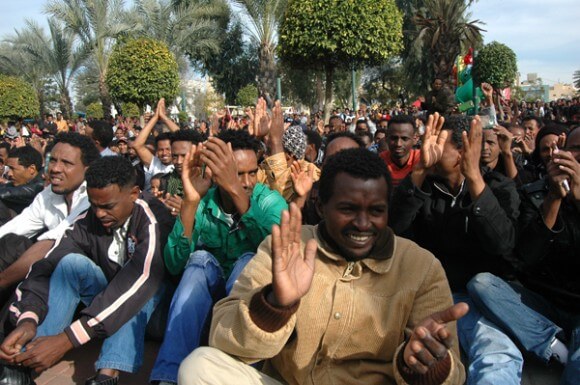
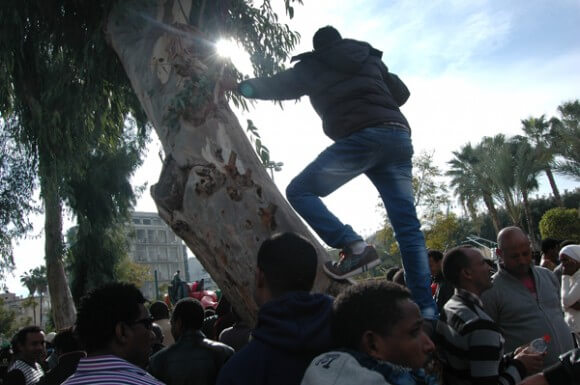
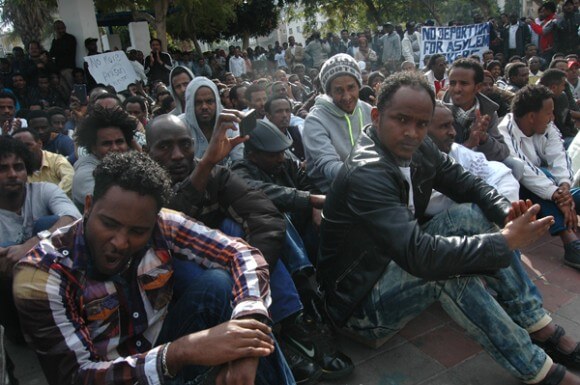
A few months ago Israel’s high court ordered the release of Africans desiring refugee status incarcerated without charge. But the Knesset intervened and passed a new law that allowed for a loophole of extended detention for asylum seekers. “We want Israel to start checking our asylum claims in a fair and transparent way. That’s what we are demonstrating for,” continued Ali.
Yesterday Ali and fellow organizer Mulugeta Tu’umzght, 25, led a march to the United Nations High Council for Refugees. Tu’umzght and five others were brought inside of the UNCHR Tel Aviv office. “We really did a fantastic job,” said Tu’umzght gleefully last night when he spoke to me from outside a house near the city’s bus station that doubles as an organizing center for Tel Aviv’s African populations.
Tu’umzght’s task was to hand-deliver a letter written by the asylum seeker community asking the UN to persuade Israel to reopen a process for filing refugee claims. In the past the UN handled processing asylum files, but in 2009 Israel’s Ministry of Interior took over and stopped reviewing the paper work all together. Today, Africans seeking asylum are in the dire situation of residing in a country the does not allow them to submit a refugee claim, even though Israel is a signatory to international refugee conventions. Moreover, in the wake of World War II and the Nazi Holocaust, Israel helped draft this very same refugee law that is now implemented in most developed nations.
While in the UN office, Tu’umzght hatched a plan to improve the leverage of African asylum seekers. He told the UN representatives, “please, can you go with us down [outside], with our people and will give the letter in front of our people,”—the thousands who were chanting “freedom” and “no prison” on the street. It worked. The UN officials walked outside and an impromptu ceremony of unofficial international commitment was solidified. In front of thousands of protesting asylum seekers, the UN leaders said they would give an official response in the coming days.

